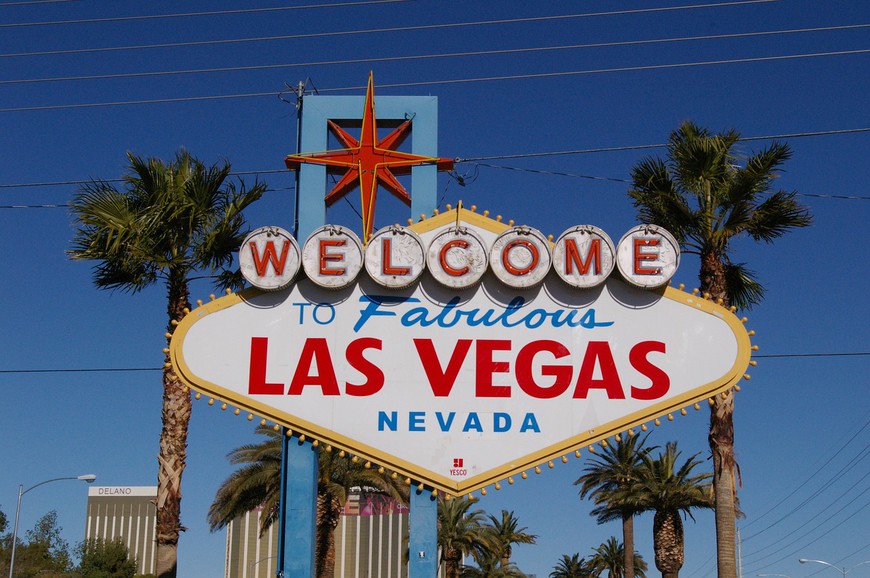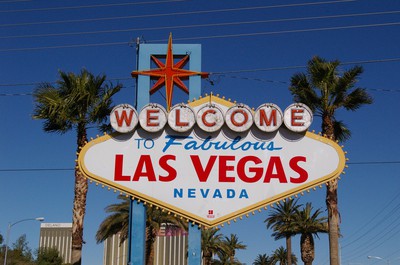

GVC Holdings, one of the largest online gaming operators in the world and owner of the resurgent partypoker USA brand, is set to receive a license that would allow it to launch online poker operations in the US state of Nevada.
On May 8, the Nevada Gaming Control Board (NGCB) recommended approval of a provisional license for GVC that included a request to offer Interactive Gaming. In Nevada, Interactive Gaming refers to internet poker.
If approved, the company must provide $100,000 to the board to cover the cost of further regulatory investigations and return to the gaming commission in two years for permission to continue to operate, according to Las Vegas Review-Journal.
The Isle of Man-based company now awaits approval from the Nevada Gaming Commission (NGC), the body responsible for administering regulations and granting gaming licenses. This hearing is slated to take place on May 23, and the NGC is expected to take the recommendation of the NGCB and approve GVC’s request to offer online poker in the state.
Pokerfuse reached out to GVC for comment on the status of its Nevada license application, but the operator chose not to share any additional information.
Curiously, within 24 hours of receiving the recommendation of the NGCB, GVC’s brand partypoker LIVE announced that it will be heading to the United States for the first time with a $5 million guaranteed MILLIONS Vegas “Special Edition” tournament. The prestigious tour will stop at the ARIA Resort & Casino from June 28 to July 2 ahead of the start of the 50th anniversary of the World Series of Poker.
 Sign Up Today »
Sign Up Today »
- Largest player pool in New Jersey
- Compete for World Series of Poker bracelets from New Jersey
- Great Sign up bonus and player rewards
Nevada Online Poker Market History
Nevada is currently one of only three states to offer legalized online poker in the US. Pennsylvania will become the fourth when it launches its online gaming market during the week of July 15. The Silver State first started offering online poker in April of 2013. Its market is relatively small due to its population of just 3 million. However, it is a popular destination for poker players, especially during the summer months when thousands descend on Las Vegas to play in the World Series of Poker.
Currently only two online poker sites are approved in Nevada: WSOP.com on the All-American Poker Network (AAPN) and Real Gaming Online Poker, which is owned and operated by South Point Hotel, Casino & Spa in Las Vegas, but is effectively dormant due to its low level of traffic.
Ultimate Poker was the first online poker room to be granted a license in Nevada. It launched its operations in April 2013 but shut down in November 2014 due to revenues falling short of projected expectations.
Interestingly, partypoker also received its online poker license in November 2012 from the Nevada Gaming Commission through a relationship with MGM and bwin.party, but it never launched presumably due to the market size.
Online poker giant PokerStars is restricted from offering online poker in Nevada due to a provision in the law that restricts the use of assets (including trademarks, customer databases and—most importantly—software) that was used to offer wagers in the US after December 31, 2006 and before licenses were issued.
WSOP.com currently dominates Nevada with a market share of over 99% while Real Gaming’s traffic is practically zero. WSOP.com shares its Nevada player pool with the AAPN players in Delaware and New Jersey.
Why Apply for Online Poker Now?
While it has been over six years since Nevada launched its regulated online poker market, given its market size, there is little benefit to launching an online poker room in the state, so the question is why now?
One of the possible reasons for launching its operations in the Nevada is that GVC sees online gaming in the US as a long-term investment. As of now, only three states—New Jersey, Nevada and Delaware—have joined the Multi-State Internet Gaming Agreement (MSIGA). Under the agreement, operators are allowed to merge their player pools with their rooms in other states that have joined the agreement.
The merging of player pools, also known as shared liquidity, is an essential aspect of the online poker industry as it allows operators to increase the volume of activity on their platforms. This increased liquidity allows operators to offer a wider selection of games and bigger tournament prize pools which attract more players and results in greater revenues for operators.
However, in January, the shared liquidity project was put in jeopardy following the reinterpretation of the Wire Act by the Department of Justice (DOJ). According to the revised opinion, the 1961 law prohibits all forms of interstate gambling and not just sports betting.
The DOJ gave operators and regulators 90 days to bring their online gaming offering in line with the new reinterpretation of the Wire Act. That deadline was further extended by 60 days until June 14, 2019, after which operators could face fines and penalties by the DOJ should they fail to comply with the new interpretation of the law.
The matter is still in the courts and there is a possibility that the DOJ’s view of the Wire Act could once again be revised, allowing interstate online poker to continue unimpeded.
With GVC already operating in the New Jersey through its partnership with MGM/Borgata Casino and with partypoker set to launch an online poker room in Pennsylvania (expected to go live in mid-July), launching an online poker room in Nevada makes sense for the company.
While Pennsylvania has yet to join the MSIGA, there are hopes of it joining in the future. If Pennsylvania indeed joins there will be cross-border shared liquidity between four states.
Another potential reason for looking to Nevada to offer online poker is its link to sports betting which is booming in the country following the overturning of PASPA. In July 2018, GVC entered into a 50/50 Joint Venture partnership with MGM Resorts International to capitalize on opportunities in the emerging US sports betting markets and to become one of the leading sports betting platform in the country. Being able to offer its sports betting customers online poker may help to keep them engaged with the brand and prevent them from straying elsewhere to find online poker options.
The NGCB Recommendation Did Not Come Easy
The Nevada Gaming Control Board gave GVC the green light after nearly four hours of testimony. The recommendation did not come easy for the company as not everyone on the three-person board wanted to see GVC licensed in Nevada.
Board member, Terry Johnson voted against an approval recommendation and criticized GVC CEO Kenny Alexander for the company’s operations in other markets, particularly Turkey.
Referring to the company’s questionable conduct in Turkey, the Las Vegas Review-Journal reported that Johnson chastised Alexander: “I’m at a loss to understand where exactly did the buck stop in the company if it didn’t stop with you, and why are we to be assured that going forward you’re going to be at the helm of this company in a different manner than what transpired over the past several years?”
However, two other board members voted in favor of the recommending approval for a provisional license for the company. Final approval must come from the Nevada Gaming Commission which is expected to grant GVC a license to operate.

